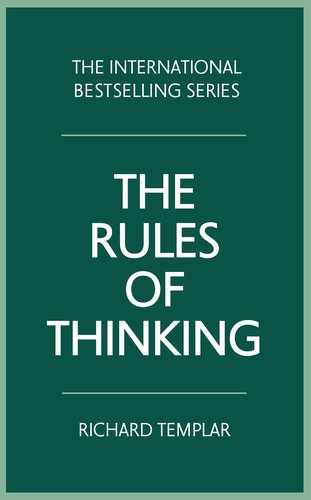I know I said in the introduction to this section that there’s no place for emotion in critical thinking. However I should point out that a lot of ‘rational’ arguments are in fact emotional and not rational at all. You need to be able to identify them, whether it’s your own view or someone else’s.
Here in the UK, the argument over whether we should be part of the European Union has been raging for about half a century. At any stage – do we join, do we leave, do we sign this or that treaty – people on both sides of the debate put forward their arguments passionately. You would have thought, wouldn’t you, that by now the country would have worked out which was the right answer. Where the weight of argument fell. But they haven’t (and they probably never will).
And why haven’t they? Simple. It’s because there isn’t a right or wrong answer. No one ever really knows what will happen to the economy, immigration, industry until they get there. It’s all forecasts and what ifs and worst-case scenarios. All those people who claim the facts support their argument are kidding themselves. If the facts coherently supported one argument over the other, we’d pretty much all be persuaded.
What all these people have is an opinion. A belief that is driven by their hearts, not their heads. They want to be part of a bigger Europe, or they feel that immigration is bad for the country, or they believe in devolving power to the most local level possible. All of these beliefs are quite understandable, but unfortunately they’re not all compatible with each other, which is why there’s no agreement. Everyone can find examples and data and arguments that support their case, and apparently everyone can also ignore examples and data and arguments that don’t.
This is the reason why it’s said you should never discuss politics or religion because it always leads to arguments. People won’t change their minds on these points through rational argument, because they’re not rational standpoints. They’re valid beliefs, but they weren’t arrived at through logical reasoning and they’re not going to give way to it. Nevertheless people like to debate them as if they were rational and can get extremely heated when they have to defend their non-rational position against a set of facts and statistics that may offer a serious challenge.
I’m not sure why people aren’t more aware of this, and why they feel it’s not acceptable to say, ‘I’m not interested in logical argument thank you. This is what I believe in my heart and I don’t feel the need to defend it rationally. It’s not based on fact but on my personal values.’
Actually what we do, though, is to take a position based on our values, and then post-rationalise it with what we consider to be logical reasoning, using whatever facts and examples happen to support us.
It’s fine to hold these non-rational beliefs, but be self-aware about it. Recognise when other people are doing it (less wittingly34 than you), and realise that you can never defeat them in an argument because that’s not how it works. Argue if you want to, but accept it will get you nowhere.
THEY’RE VALID BELIEFS, BUT THEY WEREN’T ARRIVED AT THROUGH LOGICAL REASONING
_________________________
34 Is that a word? It should be a word.
